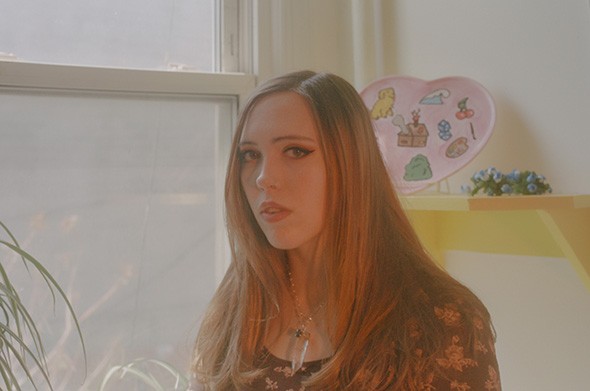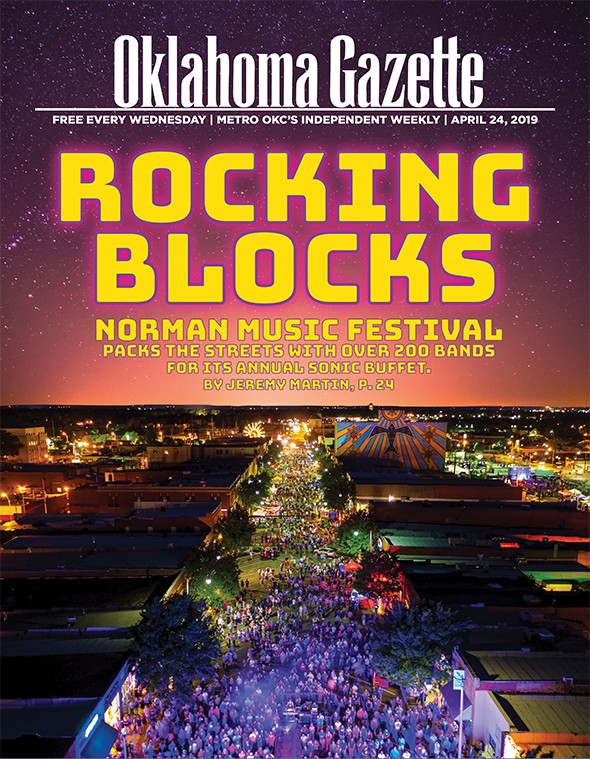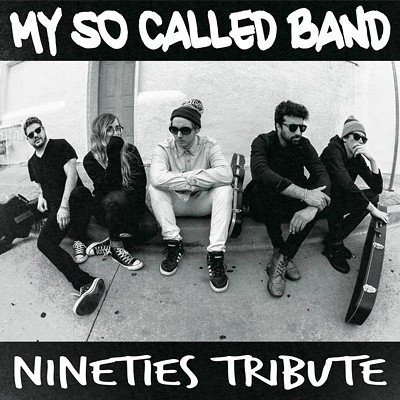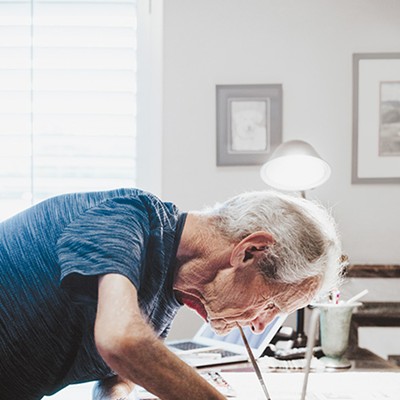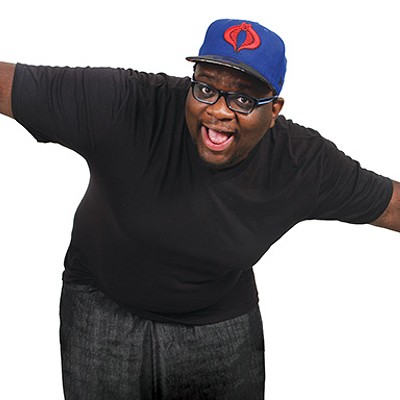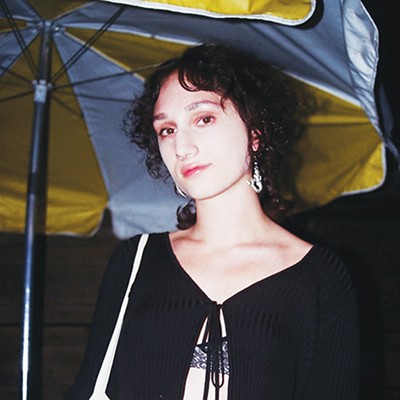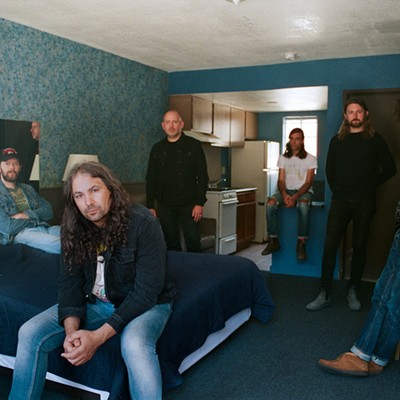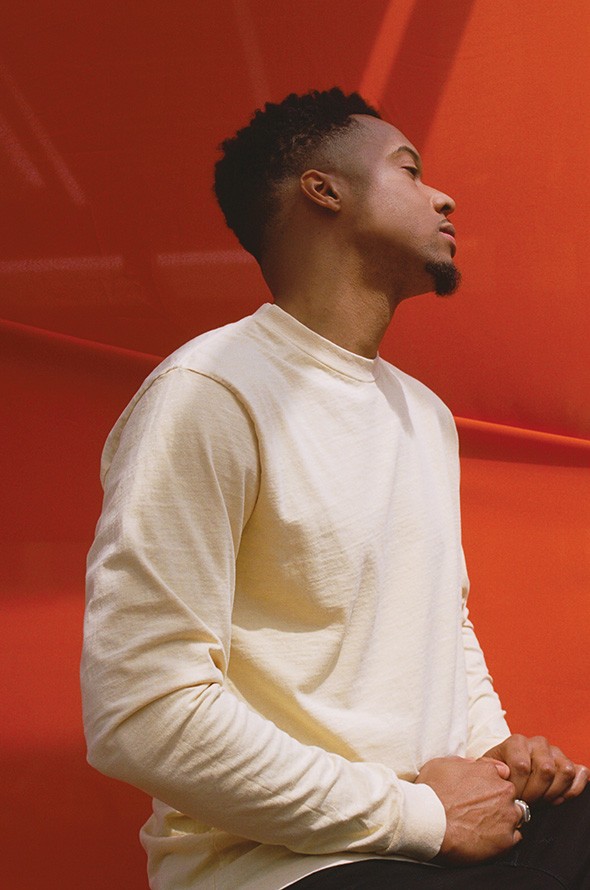
Black Milk
8:30 p.m. Saturday
Fowler Automotive Main Stage
Norman Music Festival
E. Main Street and Porter Street, Norman
normanmusicfestival.com
Free
Soccer Mommy
10:45 p.m. Thursday
Opolis Outdoor Stage
Norman Music Festival
113 N. Crawford Ave., Norman
normanmusicfestival.com
Free
Other than their headlining spots in the Norman Music Festival lineup, Black Milk and Soccer Mommy do not, at first glance, seem to have much of anything in common.
Black Milk, aka Curtis Cross, first gained hip-hop notability in 2002 as a producer working with fellow Detroiter J Dilla’s Slum Village. In the years since, he has become a respected underground MC and beatmaker known for his insightful lyrics and adventurous instrumentals. His 2018 album Fever mixes hip-hop production with live band contributions for a sound The Guardian called “echoey, soulful and old-school.”
Soccer Mommy, aka Sophie Allison, began uploading lo-fi home-recorded releases such as the 2015 EP Songs for the Recently Sad while she was still in high school and playing swing music in jazz band. Her full-length debut, Clean, released last year, made several critics’ best-of-the-year lists. Pitchfork called it “a compact album of clear melodies, plainspoken lyrics and the impossibly tangled logic of infatuation” and compared it to Liz Phair and Taylor Swift.
We spoke to Black Milk and Soccer Mommy (separately, unfortunately) about their music-making methods and philosophies and discovered one similarity: Both strive for originality and authenticity in an age when both qualities are often thought endangered, if not extinct.
Black Milk
Oklahoma Gazette: Has touring with a live band changed the way you look at music?
Black Milk: It definitely helps me have a better perspective of how songs are going to come off live when I perform them. … I’ll watch what people react to in the crowd, and I try to remember to bring that back to studio recordings and hopefully continue to get that same reaction out of them. I think that’s the main thing. It just helps me know what to do in the studio, little tricks. … When people nod or start dancing to certain rhythms, I kind of keep that in mind when I go back and make new music.
OKG: Do you think there’s something inherently different in the way a crowd responds to a live band as opposed to a DJ?
Black Milk: Yeah, definitely, especially when there’s parts of the show where we improvise and feed off the crowd and kind of go off-script. Those are the most fun parts, and when I talk to people after the show, it seems like those are the most entertaining parts for them as well. It’s me and the crowd response, and we’re kind of just feeding off of each other. You can’t really do that a lot when it’s just you and a DJ. The band just gives me way more room to do a lot more stuff off the cuff.
OKG: Your work has a lot of socially conscious elements to it. How do you find a balance between talking about real-life issues and just getting people to dance and move and have a good time?
Black Milk: Being a producer for so long, I kind of have an understanding of what to do in the sense of sound and sonics and melodies. Listening to some of my heroes’ music, certain artists that are able to get a certain message across but are able to still keep a vibe that’s not totally dark or totally grim or totally sad. … That was kind of my mindset going into Fever. The music has a feel-good energy, but the topics are definitely, not serious but conscious.
OKG: Do you feel like the music loses anything by moving away from physical means like going and digging in record crates for samples or using older synthesizers and drum machines and things like that? Or do you think it gains more from the technology update?
Black Milk: I look at software as just another tool, just like an MPC3000 or something, just another tool for me to get what I hear in my head out of the speakers. So I don’t feel like it’s lessened my creativity. … I still mess with old-school keyboards. I still dig for records and all of that stuff. That hasn’t really changed. I can just do a lot of that stuff faster now.
Soccer Mommy
OKG: Was there a specific moment when you realized that people were listening to your demos online?
Soccer Mommy: I think the time when I realized I was starting to build a fanbase was probably around the time I released the [2015] album Songs From My Bedroom on Bandcamp. About when I released that one, it started to pick up fans and I started seeing artists I like notice it. It just seemed like something was actually starting to build.
OKG: Do you think that had any effect on the way you were writing music or the way you were putting things out?
Soccer Mommy: I don’t think it did. I still just kind of released stuff. It maybe gave me a little more confidence, but I don’t think it affected my writing.
OKG: Is there anything from your home recording that you feel like you have to hold on to or that you’re very protective of?
Soccer Mommy: I don’t know. I never want it to be too hi-fi, really. I just don’t love the sound of really clean recording. I like there to be noise. I like there to be intimacy there, but I don’t think there’s any one specific thing I want to try to hold on to. The songs always come from these demos that I make and the ideas and the sounds that come in these demos, but I think that it still has a piece of that at the core of it, of the feeling that comes with the original song.
OKG: Did playing a lot of standards and older songs in a swing band teach you anything about songwriting?
Soccer Mommy: I think it taught me a lot of chords that I use, major sevenths and stuff. It taught me to get away from just using bar chords and things like that. It taught me a lot of the scales that I base a lot of my licks off of. A lot of the guitar melodies in my songs are based off arpeggios and stuff that I learned from playing jazz music. I don’t think I picked up anything, lyrically, from jazz.
OKG: I’ve often seen your music described as sad. Do you feel like it’s sad?
Soccer Mommy: I mean, it’s not happy, I don’t think, but I don’t think it’s the most depressing thing ever. I think it’s just honest stuff about my life, but there’s definitely songs that I consider sad songs. There’s some that I consider less sad. There’s some that are angry. Occasionally, there’s a happy one.
Admission to Norman Music Festival is free. Visit normanmusicfestival.com.

